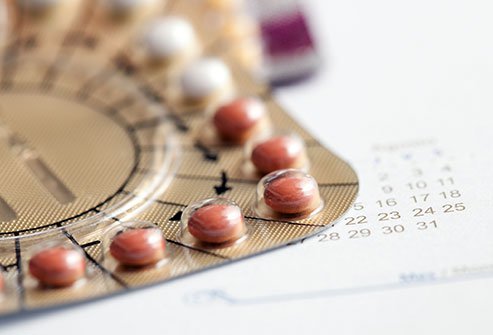What is hormone replacement therapy? (HRT)

Signs you may need hormone replacement therapy (HRT) include replacing low estrogen and progesterone levels. The treatment helps provide relief from the symptoms of menopause and conditions such as bone loss, breast cancer, and infertility.
Hormone replacement therapy is a medical treatment usually given to women to replace declining estrogen and progesterone levels. It is used to relieve symptoms of menopause and treat conditions like a bone loss that are caused by these falling levels
Conditions that may cause low hormone levels
Hormones naturally decline as you continue aging. However, there are certain conditions that may cause unusually low levels of sex hormones that may need treatment. These conditions include:
Menopause
Menopause is the time when you have been period-free for one year without being pregnant, breastfeeding, sick, or taking certain medications. It is a natural occurrence as a result of aging.
In the years before menopause, the ovaries shrink and the number of hormones fluctuates. This can create symptoms like hot flashes and vaginal dryness that many people find difficult.
Surgical removal of ovaries
If your ovaries are removed before age 45, you may not have enough estrogen that helps protect against heart disease, osteoporosis, stroke, dementia, certain types of cancer, or mood changes. You may pursue HRT to prevent these conditions.
Early menopause
If you experience menopause before age 45, you may not have enough estrogen that helps protect the body. You may need hormone replacement therapy to prevent disease.
Primary ovarian insufficiency
This is a condition where the ovaries lose normal function. If this occurs before age 45, you may not have enough estrogen and you may need hormone replacement therapy.
Other hormone conditions
Hormone replacement therapy may be used to treat other conditions like breast cancer, infertility, and endometrial hyperplasia, which is the overgrowth of the lining in the uterus.

SLIDESHOW
Exercises for Seniors: Tips for Core, Balance, Stretching See Slideshow
When to see a doctor for hormone replacement therapy (HRT)
Menopause is a normal part of aging and most symptoms will pass on their own. Some people find them mildly uncomfortable and others find they interfere with normal living. When you begin to experience menopausal symptoms or find them unbearable, you can see a doctor discuss how to proceed.
If you have symptoms related to other conditions, like early menopause before age 45, chronic period problems, abnormal periods or bleeding, or infertility, you should see your doctor determine the cause.
Diagnosis & tests for hormone replacement therapy (HRT)
If you are age 45 and above, your doctor may not test you for signs and symptoms of menopause. Once symptoms occur, your doctor may examine you, take a personal and medical history, and work out lifestyle factors that improve your symptoms.
If you are under age 45, your doctor may perform blood tests to determine your hormone levels. They may also perform ultrasounds and physical exams to find the cause of your hormone deficiency.
Hormone replacement therapy (HRT) Treatments
There are several different types of hormone treatments. For menopause and sex hormone-related conditions, many women take either estrogen, progesterone, or a combination of both.
Types of hormone replacement therapy
Hormone therapies can be taken in several ways including:
- Estrogen cream, tablets, or rings inserted into the vagina
- Estrogen cream, lotion, or gel applied to the skin
- Progesterone cream applied to the skin
- Estrogen or estrogen-progesterone skin patch
- Estrogen or progesterone tablet is taken by mouth
- Dehydroepiandrosterone (DHEA) cream inserted into the vagina
Some women prefer to use bioidentical hormone replacement therapy, which involves natural, plant-derived, or compounded hormone preparations. These may offer some benefits, however, there isn’t enough research to know the risks.
Your doctor may start with a low dose for several months to monitor the effects on your body and see if it helps. Many doctors disagree about how to use hormone therapy and studies indicate there are some risks associated with hormone replacement therapy.
You should speak to your doctor about whether hormone replacement therapy is right for you if you:
Latest Women’s Health News
Daily Health News
Trending on MedicineNet
Medically Reviewed on 5/2/2022
References
Mayo Clinic Proceedings: “Bioidentical Hormone Therapy.”
Merck Manuals: “Menopause.”
National Health Service: “Hormone replacement therapy (HRT).”
National Institute of Health National Cancer Institute: “Menopausal Therapy and Cancer.”
Office on Women’s Health: “Early or premature menopause.”
Office on Women’s Health: “Menopause.”